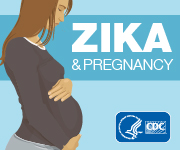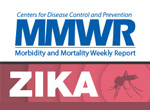Potential for Falsely Low Blood Lead Test Results from LeadCare® Analyzers
Date:Wednesday, May 24, 2017
Time: 2:00-3:00 pm (Eastern Time)
Overview
On May 17, 2017, the U.S. Food and Drug Administration (FDA) issued a safety communication warning about the use of Magellan Diagnostics’ LeadCare® analyzers with venous blood samples because they might result in falsely low test results. FDA is now advising that Magellan Diagnostics’ LeadCare® analyzers should no longer be used with venous blood samples. The safety alert does not apply to capillary blood lead test results collected by fingerstick or heelstick. During this COCA call, clinicians will learn the importance of lead testing for children and pregnant or lactating women, which patients may be impacted, and CDC’s recommendations for re-testing.
Adrienne Ettinger ScD, MPH, MS
Chief, Healthy Homes and Lead Poisoning Prevention Program
National Center for Environmental Health
Centers for Disease Control and Prevention
Robert Jones, PhD
Chief, Inorganic and Radiation Analytical Toxicology Branch
National Center for Environmental Health
Centers for Disease Control and Prevention
- Describe the importance of lead testing among children and pregnant or lactating women.
- List the patients who are most at risk for falsely low blood lead level test results.
- Determine which of their patients need to be retested.
- Understand and discuss the safety alert and need for retesting with their patients.
- Slides: View Now
- Audio conference call on Wednesday, 05/24/17: 2:00 - 3:00 PM (Eastern Time)
- Web-on-demand training after 3:00 PM on 05/24/17
- Materials: PowerPoint slide set
- CDC Health Alert Network Notification
- Flow Diagram for Determining Potentially Affected Blood Lead Tests and the Need for Retesting
- Blood Lead Test Safety Alert
- FDA Safety Communication
- Summary of Recommendations for Follow-up and Case Management of Children Based on Confirmed Blood Lead Levels
- CDC’s Childhood Lead Poisoning Prevention Program
Accreditation Statements
Continuing Education
- Activity number:WCWD2286(SC)
- Date of origination:December 12, 2013
- Date of renewal:December 12, 2015
- Date of expiration:December 12, 2017
- Prerequisites:None
- To earn continuing education/contact hours
Target Audience
- Physicians
- Nurses
- Pharmacists
- Veterinarians
- Physician Assistants
- Health Educators
- Other Clinicians
Hardware/Software
Additional Information
- Contact Information:coca@cdc.gov
- Support/Funding:Centers for Disease Control and Prevention, Emergency Risk Communications Branch
- Method of Participation:You may participate in the educational activity by viewing the program information above.
- Fees:COCA continuing education credits are free.
Accreditation Statements
CME:The Centers for Disease Control and Prevention is accredited by the Accreditation Council for Continuing Medical Education (ACCME®) to provide continuing medical education for physicians.
The Centers for Disease Control and Prevention designates this live activity for a maximum of 1.0 AMA PRA Category 1 Credit™. Physicians should only claim credit commensurate with the extent of their participation in the activity.
CNE:The Centers for Disease Control and Prevention is accredited as a provider of Continuing Nursing Education by the American Nurses Credentialing Center's Commission on Accreditation.
This activity provides 1.0 contact hour.
IACET CEU:The Centers for Disease Control and Prevention is authorized by IACET to offer 1.0 CEU's for this program.
CECH:Sponsored by the Centers for Disease Control and Prevention, a designated provider of continuing education contact hours (CECH) in health education by the National Commission for Health Education Credentialing, Inc. This program is designed for Certified Health Education Specialists (CHES) and/or Master Certified Health Education Specialists (MCHES) to receive up to 1.0 total Category I continuing education contact hours. Maximum advanced level continuing education contact hours available are 0. CDC provider number 98614.
 CPE:The Centers for Disease Control and Prevention is accredited by the Accreditation Council for Pharmacy Education as a provider of continuing pharmacy education. This program is a designated event for pharmacists to receive 0.1 CEUs in pharmacy education. The Universal Activity Number is 0387-0000-17-172-L04-P and enduring 0387-0000-17-172-H04-P course category.
CPE:The Centers for Disease Control and Prevention is accredited by the Accreditation Council for Pharmacy Education as a provider of continuing pharmacy education. This program is a designated event for pharmacists to receive 0.1 CEUs in pharmacy education. The Universal Activity Number is 0387-0000-17-172-L04-P and enduring 0387-0000-17-172-H04-P course category.
Course Category: This activity has been designated as knowledge-based.
Once credit is claimed, an unofficial statement of credit is immediately available on TCEOnline. Official credit will be uploaded within 60 days on the NABP/CPE Monitor.
AAVSB/RACE:This program was reviewed and approved by the AAVSB RACE program for 1.0 hours of continuing education in the jurisdictions which recognize AAVSB RACE approval. Please contact the AAVSB RACE Program at race@aavsb.org if you have any comments/concerns regarding this program’s validity or relevancy to the veterinary profession.
CPH: The Centers for Disease Control and Prevention is a pre-approved provider of Certified in Public Health (CPH) recertification credits and is authorized to offer 1 CPH recertification credit for this program.
CDC is an approved provider of CPH Recertification Credits by the National Board of Public Health Examiners. Effective October 1, 2013, the National Board of Public Health Examiners (NBPHE) accepts continuing education units (CEU) for CPH recertification credits from CDC. Please select CEU as your choice for continuing education when registering for a course on TCEOnline. Learners seeking CPH should use the guidelines provided by the NBPHE for calculating recertification credits. For assistance please contact NBPHE at http://www.NBPHE.org.
There is no cost for this program.
DISCLOSURE: In compliance with continuing education requirements, CDC, our planners, our presenters, and their spouses/partners wish to disclose they have no financial interests or other relationships with the manufacturers of commercial products, suppliers of commercial services, or commercial supporters. Planners have reviewed content to ensure there is no bias.
CDC does not accept commercial support.
- Page last reviewed: May 19, 2017
- Page last updated: May 26, 2017
- Content source:
- Maintained By:





 ShareCompartir
ShareCompartir
 =
=